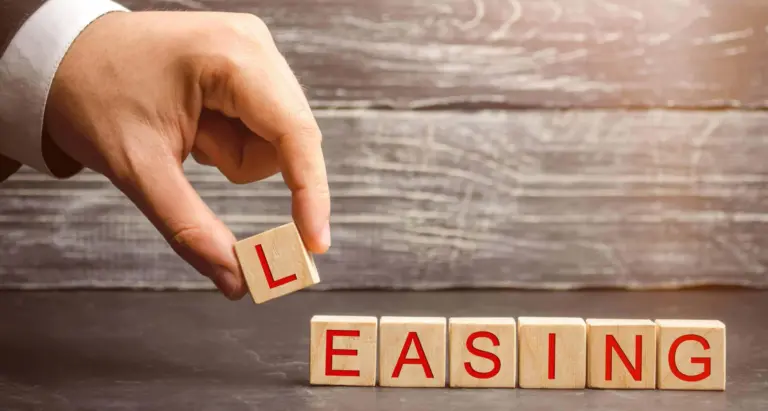In Nigeria’s unpredictable economy, companies are constantly juggling inflation, interest rate swings, and limited access to capital. For many entrepreneurs, the real challenge isn’t ambition or opportunity—it’s securing the equipment and infrastructure needed to grow.
Buying assets outright or relying on bank loans is increasingly unfeasible. With borrowing costs climbing as high as 25–35%, small and medium-sized enterprises (SMEs) are being priced out of traditional financing options.
This is why leasing has become a lifeline. Instead of sinking scarce funds into heavy upfront investments, businesses are adopting flexible lease models that preserve cash flow while providing immediate access to tools and technology.
The Equipment Leasing Association of Nigeria (ELAN) estimates that leasing injected ₦20.4 trillion into the economy over the last decade. In 2023 alone, the sector recorded ₦4.19 trillion in transactions—up nearly 29% from the previous year. Globally, leasing is now a $1.55 trillion industry, highlighting a worldwide shift: success is no longer about ownership but about access and efficiency.
How Leasing Works
Leasing allows a company (the lessee) to use an asset provided by a financier (the lessor) in return for periodic payments. Unlike conventional loans, it doesn’t saddle businesses with debt but instead spreads costs into manageable installments.
The two primary models are:
-
Finance Lease: Designed for companies aiming to own the asset eventually. Payments cover the asset’s full value, and the lessee manages upkeep. At the end, ownership typically transfers to the business.
-
Operating Lease: Best for shorter terms. Ownership and maintenance remain with the lessor, while businesses use the asset without long-term obligations.
Both models deliver clear advantages:
-
Protects working capital
-
Offers flexible repayment structures
-
Provides tax efficiency
-
Enables faster adoption of new technology
For SMEs, these benefits can mean the difference between stagnation and scaling.
Leasing’s Impact on Nigeria’s Economy
The leasing sector is more than a business tool—it’s an economic driver. By providing access to vital assets, it supports industrial capacity, job creation, and economic diversification.
-
Farmers use leased silos to reduce post-harvest losses.
-
Manufacturers expand factories without draining reserves.
-
Hospitals acquire modern diagnostic tools.
-
Logistics firms upgrade fleets to strengthen supply chains.
Each transaction not only sustains businesses but also contributes to national revenue and industrial growth. Countries with robust leasing markets consistently achieve faster capital formation and stronger enterprise resilience.
LECON: Leading Nigeria’s Leasing Revolution
At the center of this transformation is LECON Finance Company Limited, Nigeria’s oldest and most established leasing institution. Born in 1977 out of the Commonwealth Development Corporation, it became the Leasing Company of Nigeria in 1989 and rebranded in 2022 to reflect an expanded mandate.
As a subsidiary of the Bank of Industry (BOI) and a Central Bank–licensed finance company, LECON brings credibility, decades of expertise, and developmental financing to businesses nationwide.
Its focus areas mirror Nigeria’s growth priorities, including:
-
Mining & solid minerals
-
Agro-processing and food industries
-
Renewable energy and climate-focused projects
-
Healthcare and pharmaceuticals
-
Telecommunications and ICT
-
Gender-focused enterprises
Why Businesses Trust LECON
LECON’s reputation rests on four pillars:
-
Deep industry knowledge across agriculture, healthcare, logistics, and manufacturing.
-
Customized solutions tailored to client needs and repayment capacity.
-
Robust risk management to safeguard both businesses and assets.
-
Development finance backing from BOI, ensuring trust and long-term stability.
So far, the company has supported over 230 projects nationwide, from tractors for smallholder farmers to modern hospital equipment and logistics fleets.
From Ownership to Access: A New Growth Mindset
By removing the burden of outright ownership, leasing has replaced the outdated “buy-to-grow” model with a more flexible “use-to-grow” strategy. This shift gives Nigerian businesses the freedom to conserve liquidity, manage risks better, and reinvest in innovation.
Whether it’s a cassava processor in Ogun, a textile brand in Aba, or a mining venture in Kogi, LECON is equipping businesses with the means to scale sustainably.
Looking Ahead
The future of leasing in Nigeria is both bright and transformative. With tighter lending conditions and rising capital needs, leasing is positioned to become the dominant financing model for businesses.
For LECON, the mission remains clear: to be the partner of choice for enterprises determined to grow without exhausting their capital. With its heritage, expertise, and client-focused approach, LECON is not just financing businesses—it is shaping the country’s economic future.
As the saying goes: Don’t buy it—lease it. In an economy where agility matters, leasing may be the smartest investment decision Nigerian businesses can make.

